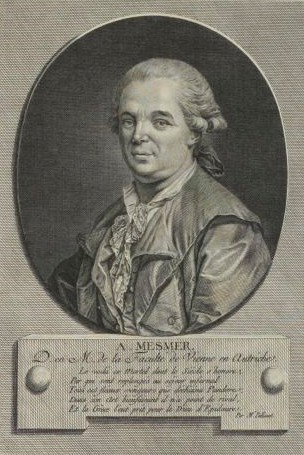
Franz Mesmer
Franz Anton Mesmer (/ˈmɛzmər/ MEZ-mər;[1] German: [ˈmɛsmɐ]; 23 May 1734 – 5 March 1815) was a German physician with an interest in astronomy. He theorized the existence of a process of natural energy transference occurring between all animate and inanimate objects; this he called "animal magnetism", later referred to as mesmerism. Mesmer's theory attracted a wide following between about 1780 and 1850, and continued to have some influence until the end of the 19th century.[2] In 1843, the Scottish doctor James Braid proposed the term "hypnotism" for a technique derived from animal magnetism; today the word "mesmerism" generally functions as a synonym of "hypnosis". Mesmer also supported the arts, specifically music; he was on friendly terms with Haydn and Mozart.
"Mesmer" redirects here. For other uses, see Mesmer (disambiguation).
Franz Mesmer
Dramatic portrayals[edit]
In Mozart's 1790 opera buffa Così fan tutte, Mesmer is dramatized as Despina, who cures two characters of poisoning using magnets.[10]
In Gregory Ratoff's 1949 film Black Magic, Mesmer was portrayed by Charles Goldner.[20] In Roger Spottiswoode's Mesmer (1994), he was portrayed by Alan Rickman.[21]